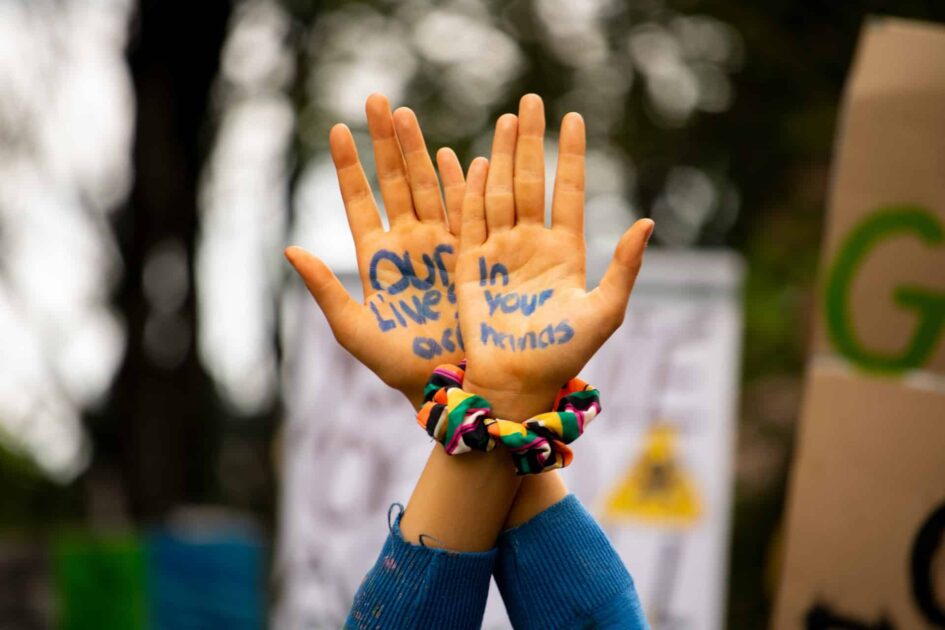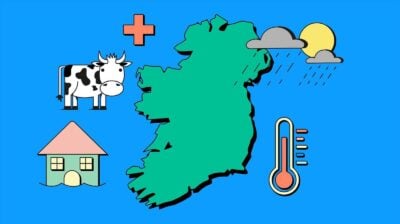Is Ireland’s new Climate Action Bill enough?
Following the release of the 2021 IPCC report, Ross Boyd asks is Ireland delivering on its climate promises?

What is the Climate Action Bill 2021?
The Climate Action and Low Carbon Development (Amendment) Bill 2021, commonly just referred to as the Climate Action Bill, is the main bill that guides Ireland’s efforts in tackling the climate crisis.
The Climate Action Bill sets out goals across the next thirty years. This includes a national climate objective to “pursue and achieve no later than 2050” a climate-neutral economy, known as net-zero emissions with the emissions being created equal to the amount taken away or sequestered.
The Bill aims to achieve this through five-year carbon budgets with the goal of reducing emissions by 51% by 2030. Alongside this is a National Long Term Climate Action Strategy, as well as county council Climate Action Plans.
This came into law in July 2021 and replaces the Climate Action Bill from 2015. The 2015 version was heavily criticised for being unambitious. The National Mitigation Plan 2017, which followed the 2015 bill, was successfully challenged in the Supreme Court by the Friends of the Irish Environment in 2020 due to falling “well short” and not being in enough detail. This also follows a rise in climate crisis issues in Irish and European politics, seeing the resurgence of the Green Party and
All of these events led to the creation of the current bill, which has finished being passed through the Oireachtas and is now law. However, while the bill is a significant improvement from the 2015 Bill, it has many issues and doesn’t go far enough to combat the climate crisis.
Why the Bill is not Enough
The main issue is the target of net-zero emissions by 2050. Many climate activists would argue this is way too late to achieve. In comparison, Uruguay and Austria are aiming for net-zero emissions by 2030 or 2040 respectively.
The effects of climate change are already being seen and setting a net zero target for 2050 is too late, when looking at other countries. It must be brought forward so that Ireland can do its fair share to avoid a global climate catastrophe.
Furthermore, while the targets are required to be reached by law, this can conflict with other agreements the government makes. This can include greater importance given to road-building projects over public transport. Trade agreements can have a negative environmental impact, such as the Mercosur trade deal which many pointed to the negative effects of beef farming in Brazil.
Many activists and legal experts say the proposed carbon budgets include sequestering carbon from trees, hedgerows and soils, and carbon capture technology, which is seen as avoiding permanent emission reductions in heavy emission sectors such as agriculture and data centres in the future.
Instead, avoiding and limiting emissions while providing alternatives is crucial for a Just Transition, especially for farmers who have been hesitant at losing income over climate measures such as the reduction of the herd.
This bill also is critiqued for failing to have a global context, including the proposed definition of Climate Justice as being “misleading” and was removed through an amendment, as well as how it would achieve the Sustainable Development Goals (SDGs).
Climate Action, similar to the SDGs, should leave nobody behind, no matter who they are and where they are from. They should also note how the people worst affected by the Climate Crisis are from the Global South and rarely are noted in discussions in the North.
While many amendments were proposed to the bill by the opposition, many of these were rejected. This saw some divide when the bill was passed and highlighted what could have made the bill much stronger than it is.
How to improve the bill
It must first be said that this bill is incredibly necessary to act on the climate and biodiversity emergency. The urgency with which it was passed is welcome and needed for Ireland to become a leader on climate.
While it has now become law, this can only be seen as law that has to be improved in future, according to Climate Case Ireland. This would ensure the bill has sufficient action to avoid the worst of a Climate Catastrophe, as well as reducing biodiversity loss and a stronger National Mitigation Plan..
Climate action must be well funded and it must be ensured the money only goes to projects which have a significant positive impact on achieving these targets. It must also ensure those in fossil fuel jobs have alternatives and that nobody is left behind in a Just Transition.
Your Voice Matters
The government also needs to be held accountable by us, to ensure it is meeting its targets. We must highlight how targets can be improved, and that they tackle those emitting emissions rather than placing the burden on individual people and their actions.
Make sure to lobby your Councillor, TD, MEP, family and friends, to ensure we can tackle the climate crisis and create a just and equal world, and protest in the streets once it is safe and you feel comfortable doing so.






